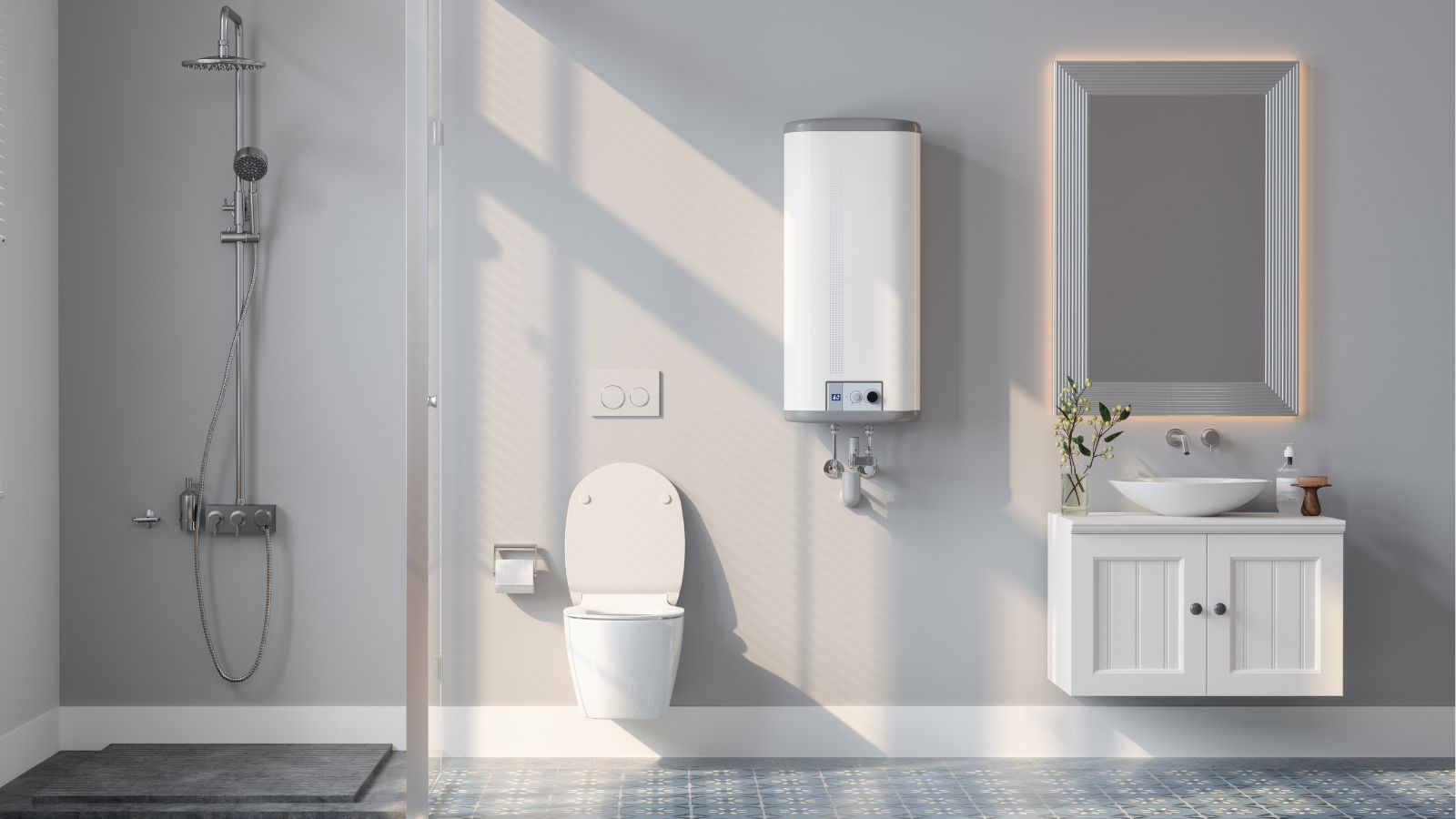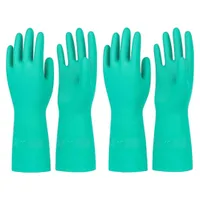How often should you drain your water heater? Experts advise
Most water heaters would benefit from draining at least once a year, but experts say this isn't a 'one-size-fits-all' rule


Design expertise in your inbox – from inspiring decorating ideas and beautiful celebrity homes to practical gardening advice and shopping round-ups.
You are now subscribed
Your newsletter sign-up was successful
Want to add more newsletters?

Twice a week
Homes&Gardens
The ultimate interior design resource from the world's leading experts - discover inspiring decorating ideas, color scheming know-how, garden inspiration and shopping expertise.

Once a week
In The Loop from Next In Design
Members of the Next in Design Circle will receive In the Loop, our weekly email filled with trade news, names to know and spotlight moments. Together we’re building a brighter design future.

Twice a week
Cucina
Whether you’re passionate about hosting exquisite dinners, experimenting with culinary trends, or perfecting your kitchen's design with timeless elegance and innovative functionality, this newsletter is here to inspire
Regularly draining your water heater is a simple yet effective way to extend its lifespan, improve efficiency, and prevent unexpected leaks or damage. Being proactive about maintenance and staying vigilant about when it should be drained can also save you money and prevent stress in the long run.
The performance of this home heating type can be significantly impacted if this task is not completed regularly. Just like draining a radiator, routinely maintaining your water heater is crucial for ensuring optimal performance and preventing issues later down the line.
We asked plumbing experts how often to drain a water heater and why this is an essential home maintenance task – here's what they had to say.
How often should you drain your water heater?
'Regular maintenance of your water heater is not just about efficiency and prolonging its life; it's also about safety and ensuring a steady supply of hot water when you need it,' explains Josh Mitchell, HVAC technician and Founder of Plumbing Lab.

Josh Mitchell is, a plumbing expert and HVAC technician and the owner of Air Conditioner Lab and Plumbing Lab
Recommended frequency

'As a rule of thumb, I recommend draining and flushing your water heater at least once a year,' advises Josh Mitchell. 'However, the exact frequency can vary based on several factors:
Heater usage: A heavily used water heater might accumulate sediment faster, necessitating more frequent draining.
Tank size: The size of your water heater tank also matters. Larger tanks can accumulate more sediment and might need more frequent draining.
Water hardness: For those living in areas with hard water, it is crucial to perform a drain-and-flush every 4-6 months to eliminate the buildup of minerals,' recommends Al Fagundes, plumbing expert and founder of A. Fagundes Plumbing and Heating Inc. 'It is astonishing how quickly sediment can amass within the tank.'
Design expertise in your inbox – from inspiring decorating ideas and beautiful celebrity homes to practical gardening advice and shopping round-ups.
Age of the heater: 'Older tanks might benefit from more frequent draining to combat the effects of wear and tear. Most water heaters are designed to last between 8 to 12 years, depending on the model, maintenance, and water quality,' explains Kelly Russum, owner of KC's Plumbing & Air Conditioner. 'Therefore, a water heater might be considered old once it reaches this age range.'
Type of water heater: 'Tankless water heaters, also known as on-demand water heaters, typically require less frequent flushing than traditional tank models because they don't store water where sediment can settle. However, they still need occasional maintenance to remove mineral buildup,' says Rossum.
'But just like with tank heaters, the exact frequency can depend on the age of the unit. For a tankless water heater, maintenance frequency increases with age: initially every 1-2 years, then annually or biannually as it ages past ten years.'

Al Fagundes is a plumbing expert and owner of A. Fagundes Plumbing & Heating Inc. He has been offering top-quality workmanship since 2003
Why draining is important

'When tap water enters the water heater tank, it carries along the natural minerals present in hard water. These minerals settle at the tank's bottom, gradually building up over time,' explains Al Fagundes. 'This poses a problem because most tank water heaters have their heating element situated at the bottom.
'As sediment (comprising minerals, sand, and other debris) builds up at the bottom of your water heater's tank, it acts as a barrier between the heating element and the water, making your heater work harder to warm the water, reducing efficiency, and increasing your energy bills,' adds Josh Mitchell. 'Additionally, the sediment can lead to corrosion, reducing the lifespan of your heater and potentially causing leaks.'
'The longer a water heater goes without a drain-and-flush, the more sediment and minerals accumulate, eventually leading to scaling,' continues Al Fagundes. 'Scaling is the hardened accumulation of mineralization, similar to the limescale found on sink faucets and showerheads.
'Excessive scaling within the water heater's tank can result in significant issues such as corrosion, which can weaken the structural integrity of the tank itself'
Haiou Chemical Resistant Nitrile Gloves | $9.99 at Amazon
When draining a water heater, adopt the proper safety precautions, including wearing chemical-resistant gloves. These gloves contain a latex rubber-free and odor-resistant flock lining to ensure a comfortable fit for big/small hands and sensitive skin.
Signs you need to drain your water tank immediately

'While these recommendations work for regular maintenance, there are certain signs that indicate your water heater might need immediate draining,' explains Kelly Russum, owner of KC's Plumbing & Air Conditioner. Here's what you should look out for:
- Discolored water is one such sign. If you notice rusty or brown-colored water coming from your hot water taps, it could be a sign of sediment buildup in your tank. This sediment can not only start to rust the tank itself but also mingle with the water, leading to discoloration and potential health risks.
- Another common indicator is unusual noises coming from the heater. Sediment buildup can cause popping, rumbling, or banging noises as the water heats and moves through the sediment. These sounds might suggest that the sediment is interacting with the heating element, and the tank needs to be drained to remove the buildup, ensuring the longevity and efficiency of your heater.
- Inconsistent water temperature is also a telltale sign. If your water heater struggles to provide consistent hot water, or if the water isn't as hot as it used to be, it might be due to sediment covering the heating element, insulating it from the water, and reducing its efficiency.
- Similarly, an increase in the time it takes to heat water can signal sediment buildup.
- Leakage around the water heater is a more serious sign. While not always directly related to the need for draining, leaks can indicate that there's been internal damage possibly exacerbated by sediment. The pressure from sediment buildup can cause cracks or breaches, which not only leads to water damage but also significantly shortens the lifespan of your heater.
- Decreased water pressure can be another result of sediment buildup. Sediment can clog the pipes leading into or out of the water heater, resulting in a noticeable decrease in water pressure. This can affect your daily water usage and indicate that it's time for a thorough cleaning.
- Lastly, if you find yourself replacing the heating elements in electric water heaters more frequently, it could be due to sediment. The buildup can cause the elements to overheat and burn out, leading to more frequent and costly replacements.'
'When it comes to the frequency of draining of a water heater, homeowners also should keep in mind that homes with water softeners might have different water heater draining needs,' says Kelly Russum, owner of KC's Plumbing & Air Conditioner.
'Softeners can reduce sediment buildup by removing minerals from the water, potentially extending the interval between flushes. However, they can also cause anode rods to deteriorate faster, which might necessitate more frequent checks and replacements.'
Remember, you can check the manufacturer's recommendations in the user manual or their website to get a more accurate idea of how often your specific water heater will need draining since some newer models might have different guidelines or self-cleaning features that will affect its maintenance schedule.

Lola Houlton is a news writer for Homes & Gardens. She has been writing content for Future PLC for the past six years, in particular Homes & Gardens, Real Homes and GardeningEtc. She writes on a broad range of subjects, including practical household advice, recipe articles, and product reviews, working closely with experts in their fields to cover everything from heating to home organization through to house plants. Lola is a graduate, who completed her degree in Psychology at the University of Sussex. She has also spent some time working at the BBC.
